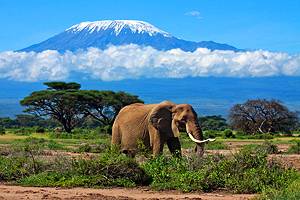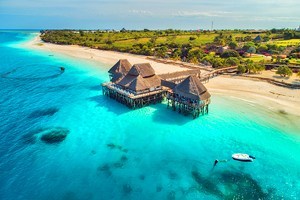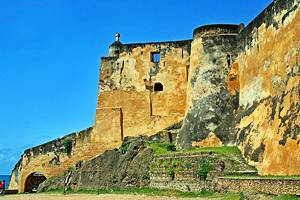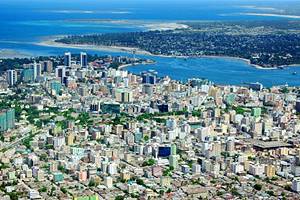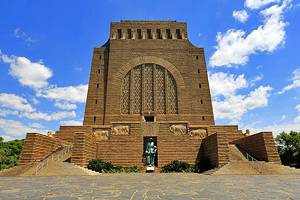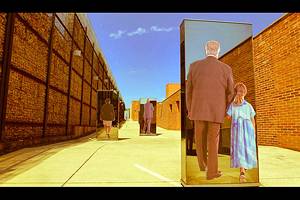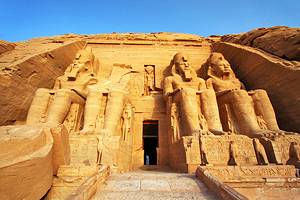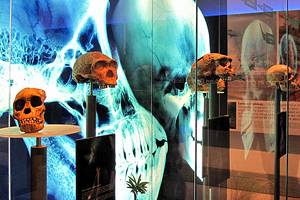Things to Do & Places to Visit in Kigali
Kigali deserves more space in a tourist's itinerary than a one-night stopover bookending the ultimate adventure: trekking to see mountain gorillas in Volcanoes National Park. Over the last two decades, Rwanda's lush, hilly capital has developed into a vibrant, cosmopolitan destination, teeming with art, culture, and cuisine. Plus, the attractive urban center is one of the cleanest and safest cities in all of Africa.
No matter how much time you have to spend in Kigali, you should plan to devote at least a couple of hours to the Kigali Genocide Memorial. The haunting museum explains the events that fueled the 1994 Rwandan genocide, and gives some essential context for the subsequent decades of peace and development in the country.
Then, explore Kigali's charming neighborhoods and attractions. Sip bold, sustainable java at Question Coffee Cafe. Shop for locally made souvenirs at the Nyamirambo Women's Center. Lose yourself in contemporary artwork at the Rwanda Art Museum.
As you plan your trip to Rwanda, don't miss out on everything the country's largest city has to offer. Plan your sightseeing with our list of the top things to do in Kigali.
Kigali Genocide Memorial
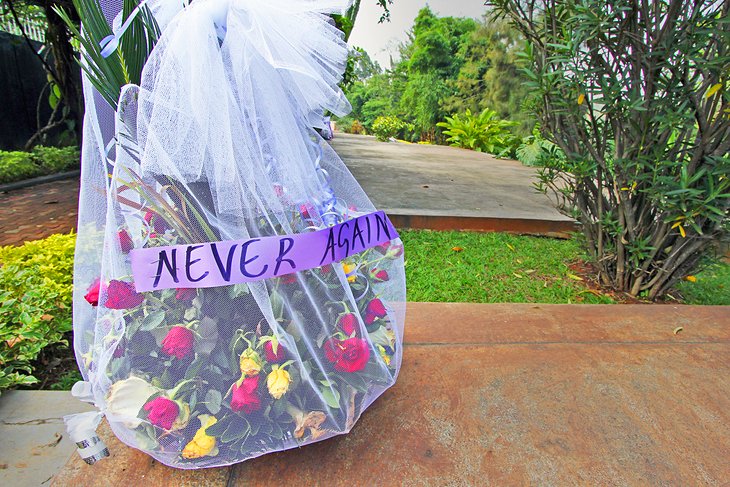
You can't begin to appreciate everything Rwanda has become until you understand the reasons behind the devastating Rwandan genocide–a conflict that killed some 800,000 people, most of whom were members of the Tutsi ethnic minority, in just 100 days. The Kigali Genocide Memorial sheds light on the historical events that led to the genocide and horrifying realities Rwandans faced in 1994.
Prepare yourself: A visit to the memorial (where 250,000 victims are interred) is emotionally demanding but gives tourists a foundation with which to comprehend this complex country. You'll start by watching a short documentary film about the Rwandan genocide before making your way through three permanent exhibitions, filled with artifacts, timelines, historical information, and photographs.
The main exhibit focuses on the 1994 genocide against the Tutsi and moderate Hutus. It explains how colonization affected Rwandan society and created divisions that previously didn't exist between Hutus and Tutsis. Then, through displays of powerful photographs, artifacts, and audio-visual displays on dark, circular halls, the exhibit unveils the events that sparked the genocide, what happened during those 100 brutal days, heart-wrenching stories of survival, and feats of rescue from locals and outsiders alike. Sculptures and stained-glass windows pepper the moving space, making it feel sacred.
You'll eventually make your way through the Children's Room, which displays a gallery of life-size portraits of the youngest victims of the genocide, some of whom were infants. It keeps the memory of the children alive through details about their favorite toys, sports, foods, songs, and more. The museum concludes with an exhibit on other genocides and massacres around the world, putting the Rwandan genocide into context and examining potential strategies for prevention and intervention.
After your visit, head outside to pay your respects to the victims in the Gardens of Reflection. The park-like setting offers the right atmosphere for quiet contemplation on everything you just saw.
Address: KG 14 Ave., Kigali
Official site: https://www.kgm.rw/
Inema Arts Center
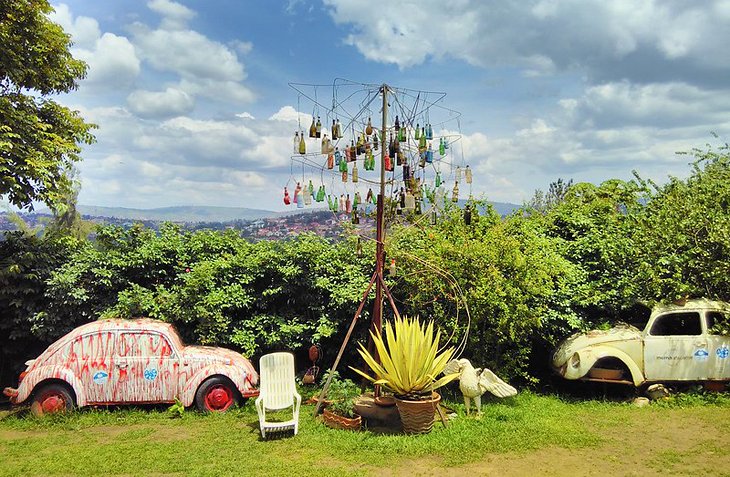
Founded by a pair of brothers (both self-taught painters) on a mission to "tap the untapped potential of art in Rwanda," the Inema Arts Center has become the place to visit to see contemporary art in Kigali since its founding in 2012. The building's exteriors are decked out in colorful murals that make it impossible to miss.
Inema Arts Center devotes its interiors to gallery space for 10 artists in residence. Tourists may see modern takes on traditional African crafts, abstract and expressive portraits, mixed-media works depicting scenes of African life, and some of the best artwork in Rwanda, depending on which mix of artists are on display during their visit.
The invitation to come admire the work comes with no obligation to make a purchase, but should you wish to take something home, the center can help arrange shipping.
In addition to visual art, the Inema Arts Center also hosts weekly dance performances, art-inspired yoga classes, gallery tours, and concerts. Get in touch with the center directly to learn about things to do during your visit.
Address: KG 563 Street, Kacyiru Kigali
Official site: https://www.inemaartcenter.com/
Rwanda Art Museum
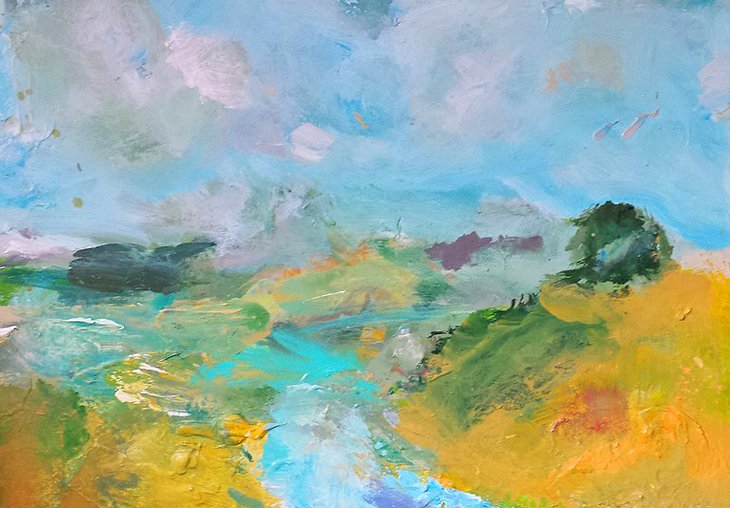
The Inema Arts Center isn't the only place to experience art in Kigali. Tourists can also check out the Rwanda Art Museum, an institution housed in the former Presidential Palace on the outskirts of Kigali. It's one of the country's eight national museums.
Opened in May 2018, the Rwanda Art Museum is the only contemporary art museum in Rwanda. It showcases the breadth of local creativity, as well as works from international artists. The sprawling space displays more than 100 works of art, including ceramics, sculptures, paintings, and experimental pieces made in a variety of mediums.
Interestingly, the grounds of the museum also contain the debris from the presidential jet that crashed on April 6, 1994. Pieces from the Falcon 50 aircraft jolt up from the grass like pinnacles.
Address: KK 106 Street, Kigali
Kimironko Market
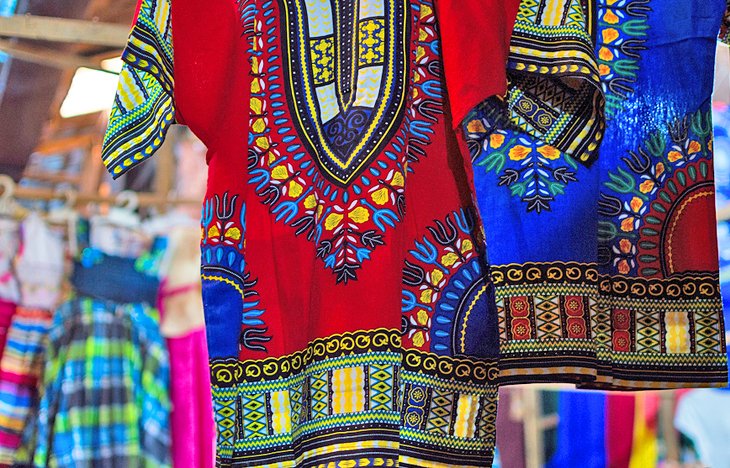
Kimironko Market, Kigali's largest and busiest market, makes for an incredible afternoon of sightseeing. Hundreds of vendors have set up shop in the massive warehouse complex, hustling everything from bed sheets and carved masks to a cornucopia of produce sourced from all over East Africa. You'll walk single file through tight pathways, ducking beneath hanging t-shirts and negotiating space with women carrying large baskets on their heads.
If there's one thing you must take home from this market, it's bespoke clothing. Shopkeepers here will help you choose vibrant, patterned fabrics from thousands of options on offer. Then, you'll select from different styles of garments–anything from tank tops and wide-legged pants to leggings and dresses–before getting measured and handing the order off to one of the on-site tailors.
In about an hour, you'll have custom, made-to-measure clothes to wear on the rest of your adventures around Kigali (and a one-of-a-kind souvenir to take home!). Make sure you try them on before leaving the market, just in case you need adjustments
It's natural to want to capture this exciting slice of Kigali life in photos. However, many shopkeepers here are camera shy and prefer not to be photographed. Use discretion when taking snapshots, and always ask permission before photographing people.
Address: 194 St. Kg., Kigali
Nyamirambo Women's Center
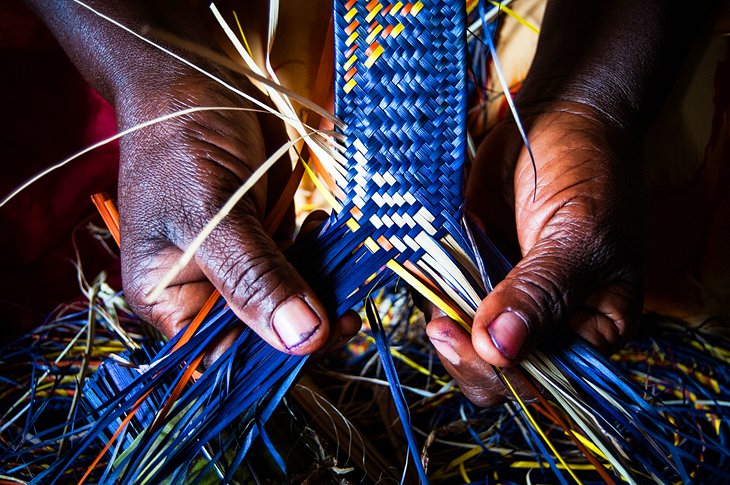
If you want to shop for truly heartwarming souvenirs, swing by the Nyamirambo Women's Center. The women-founded organization was launched in late 2007 in an effort to address gender inequality and empower women.
In addition to offering free education and vocational training, it employs women at fair wages to fill its intimate boutique with ethically-made goods. Tourists can pick up beautifully printed tote bags, hand-woven baskets in every shape and size, patterned place mats, crocheted rugs, beaded jewelry, and local-inspired fashions.
If some of the best shopping in the area isn't enough of a draw, here's another reason why visiting the Nyamiramo Women's Center is one of the best things to do in Kigali: its community immersions. The group offers fascinating walks through Nyamirambo with guides who were either born in the neighborhood or live here now, taking travelers through local hair salons, mosques, tailors, and agricultural businesses.
The center also invites tourists to participate in traditional cooking classes and basket-weaving workshops. The experiences will give you an insider's view of Rwandan culture.
Address: KN 7 Ave., Kigali
Official site: http://www.nwc-umutima.org/
Amahoro Stadium

Amahoro Stadium is the best place to see sports and entertainment in Rwanda. Sitting in the stands with up to 25,000 excited spectators watching Rayon Sports Football Club and Armée Patriotique Rwandaise Football Club take on opponents is an unforgettable experience, thrusting tourists into the heart of Rwanda's fervor for soccer.
The stadium also hosts rugby matches, live performances, marathons, and other events. Check the events listings in the local newspapers, or ask your hotel concierge about what's coming up during your stay.
Amahoro, which means "peace," is more than a sports center, though–it's a historical site. Around 12,000 people sought refuge at the stadium for weeks during the Rwandan genocide, trying to survive with little more than the clothes on their back under the open sky. The stadium pays homage to this important piece of history with events of remembrance around the anniversary of the genocide.
In March 2022, a 24-month renovation project kicked off at the stadium. It will eventually bring the attraction's capacity to a whopping 45,000 people, so expect even bigger crowds in the future.
Address: KG 17 Ave., Rukiri II, Kigali
Question Coffee Cafe
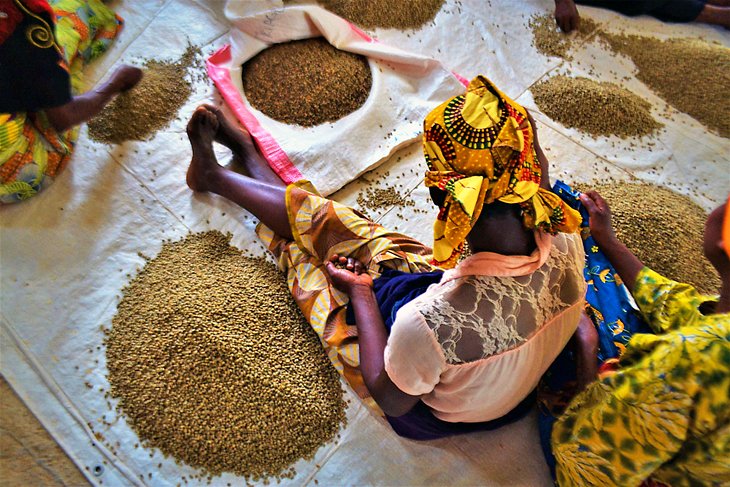
Coffee is a critical part of the Rwandan economy, bringing tens of millions of dollars into the country each year. But despite growing some of the finest beans in the world, Rwanda doesn't have much of a local coffee culture. It exports nearly all of its coffee.
Question Coffee is working to change that. It works directly with farmers to source the country's best beans, improve the growing and roasting techniques and supporting local growers.
Tourists can get a taste of this made-in-Rwanda product (and even take some beans home) at Question Coffee Cafe in Gishushu. Baristas serve a variety of speciality espresso beverages, pour-over coffee, and caffeinated drinks infused with unexpected ingredients, like tree tomato.
Looking for a deeper immersion into Rwanda's coffee culture? Check out Question's roasting and cupping classes and cooperative tours, which will explain the entire process, from bean to brew.
Address: KG 8 Ave., Kigali
Official site: https://www.questioncoffee.com/
Hôtel des Mille Collines
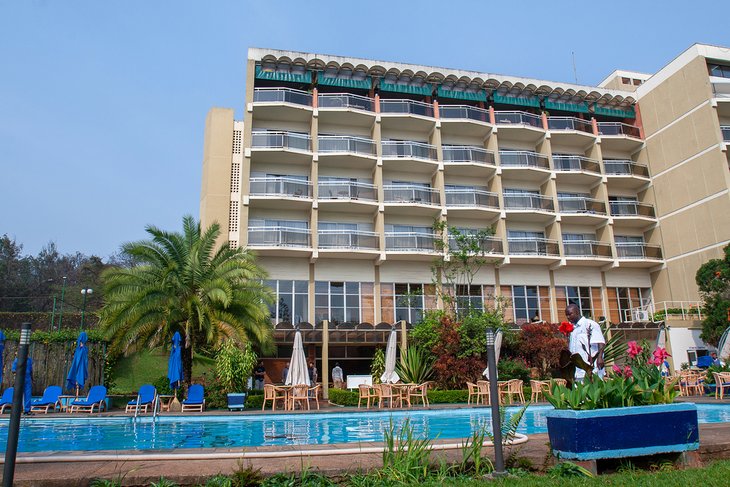
One of the most famous sites in Kigali–and perhaps even in all of Rwanda–is Hôtel des Mille Collines. Located in the Central Business District, the hotel sheltered hundreds of people during the Rwandan genocide. They hid in groups of up to 10 in unnumbered rooms and relied on the pool for drinking water. Tourists may already be familiar with the story from the 2004 fictional film, Hotel Rwanda.
The still-functioning luxury hotel is now one of the best places to stay in Kigali. But even if you choose to book a room elsewhere, you can still experience a piece of this unique place at the hotel's weekly Culture Night, held every Friday. It celebrates Rwandan culture with live music and dance performances, as well as meals made with nearly all local ingredients.
Hot tip: Want to see an incredible view of Kigali? Head to the appropriately named Le Panorama Restaurant, on the fourth floor of Hôtel des Mille Collines, and prepare to have your breath taken away.
Address: 2 KN 6 Ave., Kigali
Official site: https://www.millecollines.rw/
Camp Kigali Memorial
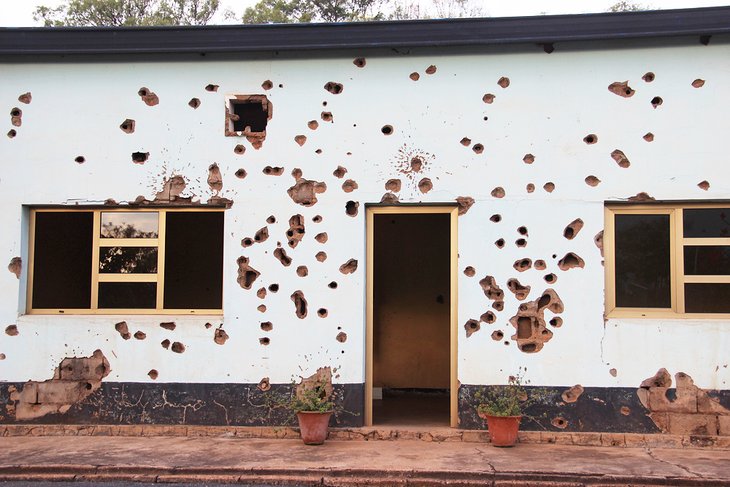
Just steps away from the Kigali Serena Hotel and the Kigali Marriott Hotel, the Camp Kigali Memorial is a quiet, sacred space where 10 Belgian soldiers became some of the earliest victims of the Rwandan genocide. They had been sent by General Dallaire to guard the residence of moderate Prime Minister Agathe Uwilingiyimana. Presidential Guard soldiers captured the Belgians, seized their weapons, and brought them to this spot in Kigali, where they were murdered.
Now, the Camp Kigali Memorial pays tribute to each of these victims with 10 solemn stone pillars, jutting up in a circle from a platform of pebbles. Look closely at the horizontal cuts carved into each column–they represent the age of each soldier. The tops of the pillars are broken, symbolizing the soldiers' brutal end. At the base of each stone, you'll see the initials of each soldier.
Just outside the memorial is a small museum, riddled with bullet holes from this important day.
More than just a dark tourism site, the Camp Kigali Memorial is a sobering space to understand the horrors of what Rwandans went through in 1994. It gives visitors a more intimate understanding of the genocide and a greater appreciation for the eventual unification of all Rwandans.
Address: KN 3 Ave., Kigali
Niyo Arts Gallery
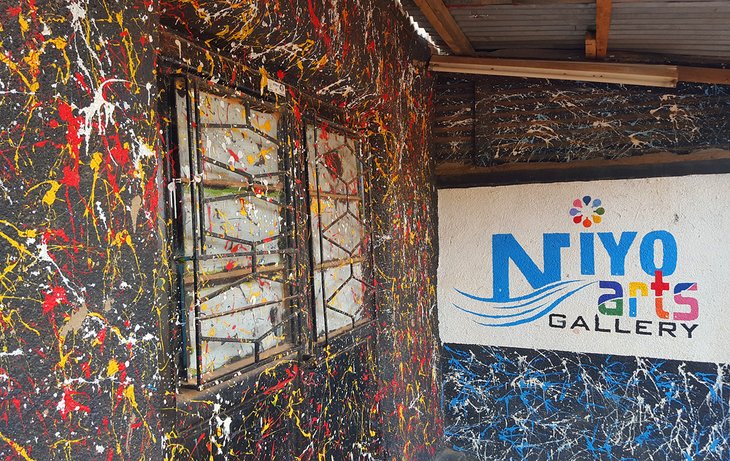
After visiting the Rwanda Art Museum, tourists can see even more works from local creators at Niyo Arts Gallery. It offers creative space for 17 artists in residence, who have expertise in everything from oil painting and graffiti art to Rwandan drumming and dancing. Tourists can see vibrant works displayed in rooms throughout the gallery, catch occasional performances, and enjoy meet and greets with the artists.
More than just an art center, Niyo is also an organization on a mission to fight global poverty. It donates a portion of its proceeds to local orphanages.
Address: KG 572 Street, Kigali
Mount Kigali
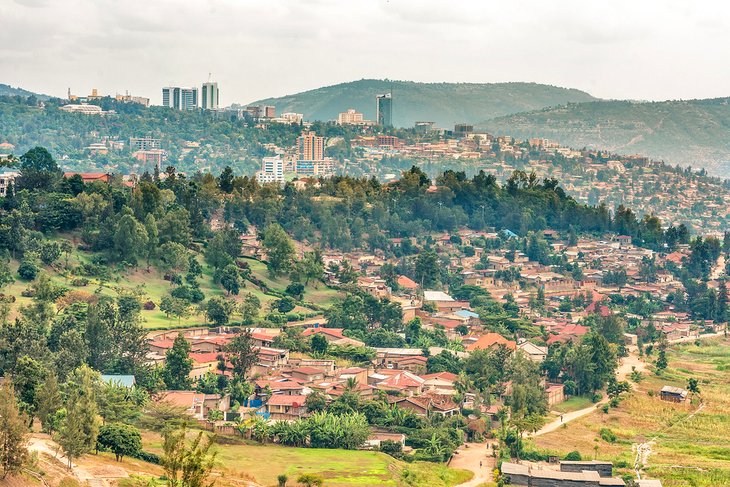
No matter where you are in the city, you can probably see its main natural attraction: Mount Kigali. Tourists can hike this gentle slope in an hour or two from near the Nyamirambo Stadium (follow the signs for Fazenda Sengha) and catch incredible views of the city from a variety of vantage points. The short hike will also take you through a lovely eucalyptus forest, coffee plantation, and a series of rustic neighborhoods.
The trail can be tricky to follow, so it's recommended to hire a guide for your first trip. Consider asking your hotel concierge to connect you with a local expert.




